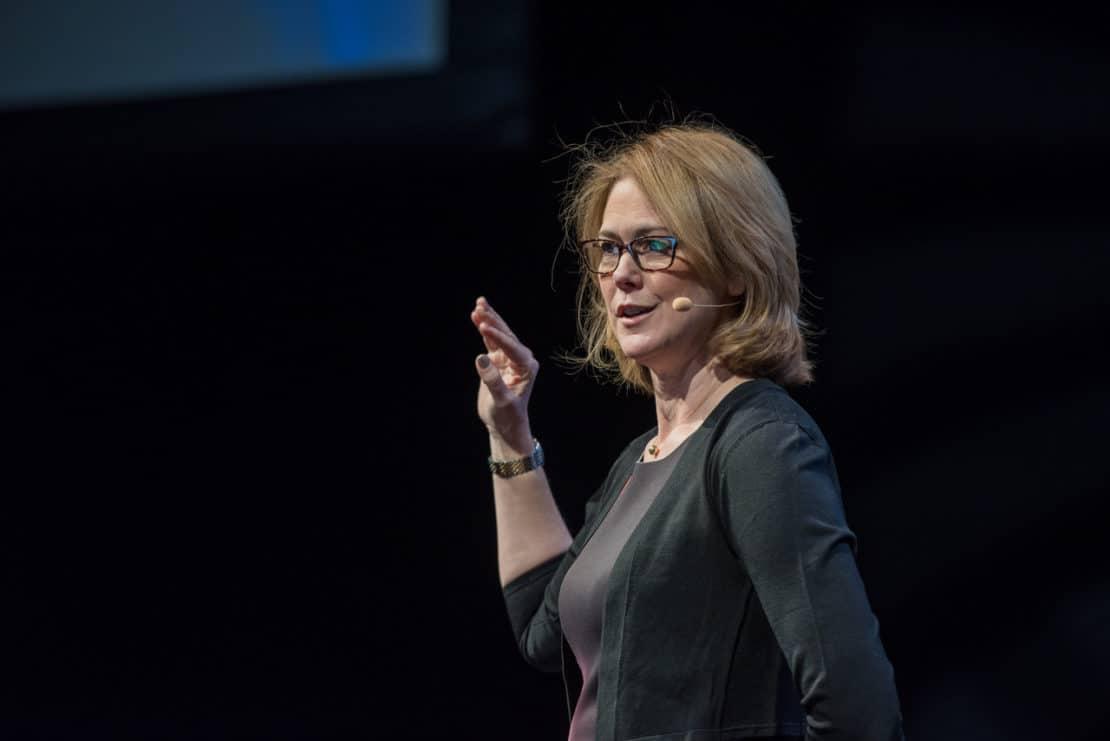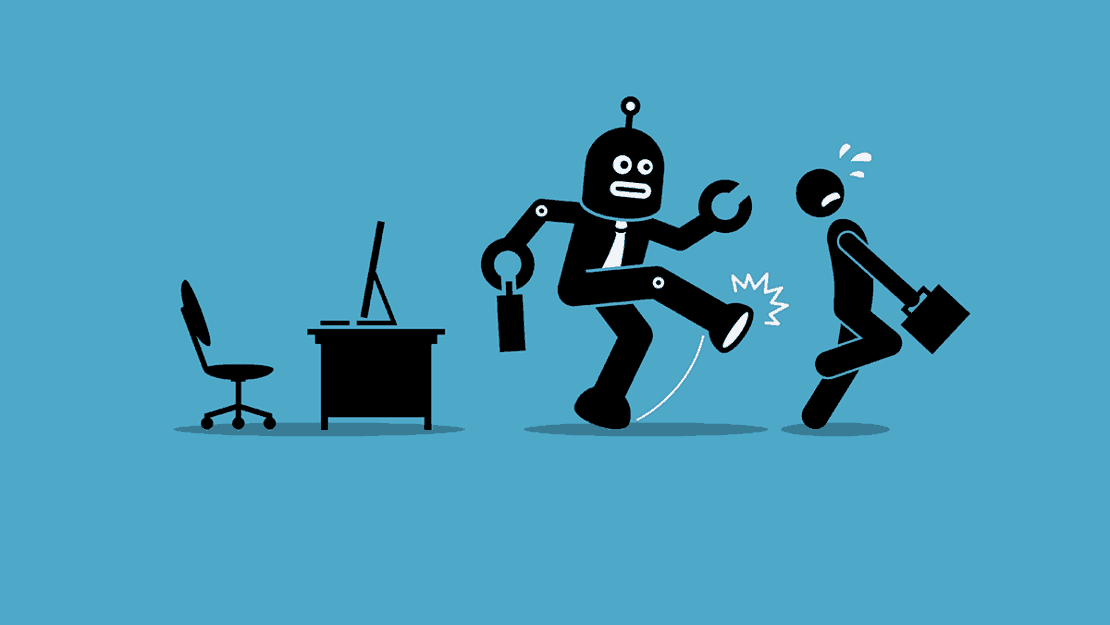10Apr2017
At first glance, Gary Vaynerchuk may come across as loud, arrogant and brash. And he curses. A lot. However, he is insanely intriguing. Once you start following him on social media and learn his spiel, whether it’s through his books or videos, you get to discover his relentless work ethic, sharp emotional intelligence, and values based on being good to people. Let alone his endless energy.
Whether you read his books, get free business advice through his #AskGaryVee shows, or watch him “hustle” 16-18 hours a day in his DailyVee videos, you’re nothing but enthralled.
As was his audience at the 2016 Nordic Business Forum. An innate communicator, Vaynerchuk had them in the palm of his hand even though the majority of the people in the room had no idea who he was.
Day trading attention
Before explaining his background, Vaynerchuk began by saying that he was targeting his talk aggressively more towards the B2B environment, given” the makeup of people in the room” and the landscape. He also made a point that no matter what businesses the people at the conference were in, “the number one thing from a business perspective that ties all of us together is quite simple – you need somebody’s attention. The currency of business is attention.”
He then highlighted how massively vulnerable entrepreneurs would be in 2017 if they don’t catch up with the high speed in which B2B and B2C customers are moving.
From humble beginnings to building successful businesses
The eldest son of Belarusian immigrant parents, Gary Vaynerchuk was three years old when he came to the United States. His dad worked hard as a stock boy in a liquor store long before he was eventually able to buy a small liquor store of his own in New Jersey.
As an entrepreneurial kid, Vaynerchuk “day traded attention” from the young age of 7, when he had six lemonade stands. When he was 12, he sold baseball cards in the malls of New Jersey, making $1,000-$2,000 a weekend.
Things changed, and his dad dragged him into his liquor store, which he hated at first, but realized that people collected wine and he was into sports memorabilia. That was the connection. “I decided to jump into my family business, open up 4,000 liquor stores across America, sell the franchise one day, and buy the New York Jets American football team because that is my dream”, he said.
In 1994, in college, he discovered the Internet or the “information super highway” as he called it. Within 20 minutes, he landed on a message board where people were buying and trading baseball cards, and realized: “My God, I can do business on this thing!” Over the next year, he learned about eBay, Amazon, the early Internet culture, and in 1996 launched winelibrary.com, one of the first two e-commerce wine businesses in America.
In 1997, he started an e-mail newsletter that grew in a year to 200,000 subscribers and 91% open rates. “In 1997 no one was emailing. We hadn’t ruined it yet. Marketers ruin everything,” Vaynerchuk said.
Between 1998 and 2003, he grew his dad’s business from $3 million to $60 million. With no marketing budget, he focused on making every penny work like a dollar.
The era of underpriced opportunities in digital and social marketing
“When you day trade attention, you don’t overspend on what everybody believes is tried and true. You have to find angles of what’s underpriced,” Vaynerchuk pinpointed.
So, what is underpriced right now, as we speak? Facebook ads. Why? “Because a lot of people in this room still debate what the ROI is, and they’re emotional that reach has come down, and now they have to pay for it,” explained Vaynerchuk.
As we live in a world of “headline readers,” very few people understand that the creative is the variable when placing an ad: “And just because you did it once doesn’t mean it doesn’t work. It might mean that the creative, the video, text, or the picture you put out just sucked.” The ad has to bring value.
He highlighted that this is the remarkable era of underpriced opportunity in digital and social marketing. Yet he’s empathetic to why most B2B people do not believe that since most of the advice positions this in a B2C environment.
He then told the audience that the sooner they understand they’re a media company, the quicker they’ll be successful. “The number one emerging thing in society in value is time. Time is exploding in value to us because we now live in a 24/7/365 world.”
People don’t have time to read sales pitches; they want to read something that brings value. More importantly, every company will need to hire an editor-in-chief.
The iPhone is the television
At VaynerMedia, the company Vaynerchuk co-founded with his brother AJ and grew to nearly $100 million in revenue in seven years from zero, they work with the likes of GE, Pepsi, Under Armour and Toyota. The number one thing his clients spend money on is programmatic banner ad buying. Nobody is looking at banner ads, though.
“We’re living through a revolution. This [shows his iPhone] is the television, and the television is the radio, and it’s 1960, and there’s a huge opportunity for everybody,” Vaynerchuk pointed out.
Before starting VaynerMedia, Vaynerchuk built businesses. His KPI is to sell something. That’s what businesses do. And he urged the audience to understand that social media – “is going to be the only game.” Otherwise, they’ll miserably fail.
“The concept of us consuming information, and making business decisions, and living our lives through this [points at his iPhone yet again] is here.” So, it is time to take action.
In 2017, the attention of consumers of all age groups and demographics all over the world will be on their smartphones. “And you better figure out how you storytell and how you market on these platforms, because if you don’t, you will be finished,” closed Vaynerchuk before moving into the Q&As.
Self-awareness and culture
Vaynerchuk was asked to encourage the Finns, who are a bit shyer, to day-trade attention. He strongly believes that everybody has to deploy self-awareness – everyone needs to know who they are. Once people get comfortable with who they are, unbelievable things start to happen. “You need to figure out the medium that allows you to communicate with the world, and on which social media platform. By not communicating in the best form for you, you’re leaving money and opportunities on the table.” His advice: “Do YOU. You know YOU. Stop being scared of who YOU are.”
He may not know what’s next, but when something new is happening, he’s not scared to put in the work and figure it out: “I have one talent,” he said, “I know what you’re going to do before you’re going to do it. And I do it by intuition, but also looking at the data. And also watching what you do with it.”
When it comes to culture, in his agency of more than 700 employees, he tries to make sure the person managing a VaynerMedia client’s account is going to be as good as him. However: “They’re not. Otherwise, they wouldn’t work for me. My game is to create a culture internally of being better than the alternative in the marketplace.”
He takes pride in his people skills, yet admits he’s been wrong many times when hiring: “The key is to make sure people can’t stay in the system if they’re not qualified: a) emotionally – getting along with people; and b) meritocracy –you have to be good enough to carry your weight.”
The difference between sales and marketing
Another question that came up about how to convert Snapchat and Pinterest into sales had Vaynerchuk clarify an essential aspect: “There’s a big difference between sales and marketing, and we’re blending them too much.”
What Vaynerchuk mostly does is marketing. He creates awareness, gives away his ideas, people follow him, get into his funnel and become aware who he is. And all of his content is free.
“There are platforms great for sales, and there are platforms great for marketing,” he said. “To be really big, you have to do both. And some platforms, like Facebook, are incredible at both, and that’s why it’s special.”
Hiring a social media manager vs. putting in the work
One last takeaway Vaynerchuk wanted to give to his audience was not to use the cliché of hiring a 22-year old to handle their social media – just because they assume they know how to use it for business. “That 22-year old was using social media to hook up with people, not necessarily to sell stuff. When you have the audacity to own your own business, you need to put in the work.”
He conveyed his genuine concern that entrepreneurs might hire somebody who has no idea what they’re doing. Or on the flipside, a person who is going to perform well, and their work will make a difference for the business. Then they’ll have the leverage, and might leave and do their own thing. Both problems could be avoided by learning to do stuff by yourself. “You have to be the best executor in your organization. This is communication. And communication drives everything,” Vaynerchuk stressed out.
This article is a part of the Executive Summary of Nordic Business Forum 2016. Get your digital copy of the summary from the link below.


